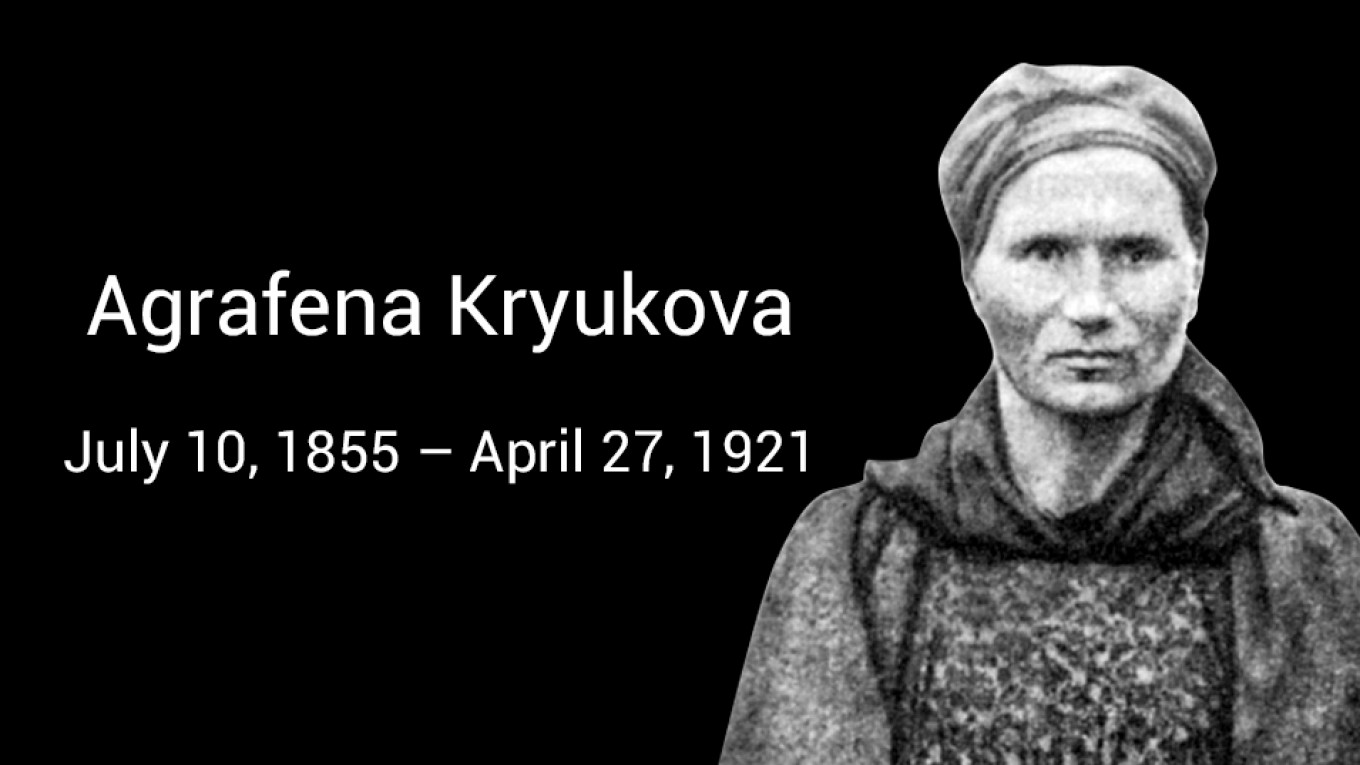Russian folklore performer Agrafena Matveevna Kryukova was born on July 10, 1855 in a small village northwestern Russian on the coast of the White Sea. Throughout childhood, her mother and uncle taught her Russian folktales known as byliny and stariny, which the storyteller chants to an audience already familiar with their plots. She stored the byliny and stariny only in her memory, as Kryukova—to her regret—remained illiterate for life. However, her memory was exceptional, and she was able to recreate songs she hadn’t heard in 30 years.
When she was 18, a severe storm washed a party of fishermen from across the sea up on the shores of her village of Chavanga. Seasonal fishing kept the fishermen there throughout the spring, during which one of them, Semyon Kryukov, courted Agrafena. She begged her parents not to make her marry him, but her family had heard Kryukov praised and insisted. In 1873 they were married and moved across the White Sea to the village of Nizhnaya Zolotitsa. Her married life was very unhappy: her sisters-in-law often beat her, she only returned to her birthplace once, and she almost stopped singing.
Kryukova most often sang to her five children, and her two oldest daughters followed her path and became folklore performers. Over the years she expanded her repertoire to more than 60 songs by learning new byliny and stariny from her father-in-law and other villagers. Kryukova claimed that each song had to be sung in its own voice and believed in the veracity of these tales. She was an Old Believer whose faith grew during her difficult married life.
Perhaps because she didn’t like to perform in public, Agrafena Kryukova never reached prominence during her lifetime. She was discovered by folklore scholar Alexei Markov in 1899 and then rediscovered by Anna Astrakhova in the 1930s. Markov had recorded and published 64 of her byliny and historic songs. She died on April 27, 1921 and was posthumously awarded a medal from the Moscow State University ethnographic society for her preservation of folklore.
At the end of this article, click on recordings to hear her sing.
A Message from The Moscow Times:
Dear readers,
We are facing unprecedented challenges. Russia's Prosecutor General's Office has designated The Moscow Times as an "undesirable" organization, criminalizing our work and putting our staff at risk of prosecution. This follows our earlier unjust labeling as a "foreign agent."
These actions are direct attempts to silence independent journalism in Russia. The authorities claim our work "discredits the decisions of the Russian leadership." We see things differently: we strive to provide accurate, unbiased reporting on Russia.
We, the journalists of The Moscow Times, refuse to be silenced. But to continue our work, we need your help.
Your support, no matter how small, makes a world of difference. If you can, please support us monthly starting from just $2. It's quick to set up, and every contribution makes a significant impact.
By supporting The Moscow Times, you're defending open, independent journalism in the face of repression. Thank you for standing with us.
Remind me later.






